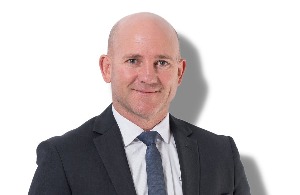
He doubts the RBNZ really wants to raise the OCR as higher interest rates will have too big an effect on mortgage holders.
Patten believes the RBNZ wants the OCR to stay at 5.5%. “If interest rates do go up it is just going to put further pressure on people.”
Reserve Bank deputy governor Christian Hawkesby told the NZ Herald the tough talk on interest rates is not a game. The RBNZ signalled in its November Monetary Policy Statement it will increase the OCR if inflation does not drop.
Hawkesby’s comments came as financial markets continued to bet on the OCR being cut next year, and two-year swap rates fell to below where they were early last week.
ANZ economists says financial markets don’t believe the RBNZ’s tough talk and remain captivated by lower global rates.
However, Westpac, now an outlier on the issue, says the central bank’s message aligns with its forecast the OCR will rise in February. All other banks that had predicted an OCR increase next year have scrapped those forecasts.
Westpac chief economist Kelly Eckhold says the probability of a further 25 basis points OCR hike next year is now estimated at about 75% compared with 36% previously. After that, the RBBNZ’s projections are for a modest easing cycle from mid-2025 – much later than priced in by the financial markets.
The revised OCR track now closely resembles the Westpac’s, but with the OCR hike coming about four months later.
Patten says that the rollover of thousands of mortgages onto higher fixed interest rates has not flowed through to the mortgage market.
“But what we are seeing is a lot of defaults on insurances.
“We are starting to see a lot of people in the upper middle class bracket not paying their insurances or cancelling their insurances because they are under financial pressure.
“It shows people are right at the fine line of the rising cost of living and a big chunk of people are really going to be struggling next year. They are going to be making the sacrifice between paying their insurances versus feeding their families. I think we're in for a really tough year next year.”
Patten doesn’t believe there will be a huge number of mortgage defaults – about 1% of the total market, which is only slightly higher than the normal of about 0.7%.
“People always pay their mortgage first if they can and everything later. That is why insurance defaults and cancellations are a strong indicator there is a big struggle out there.”
Cancellation of dwelling insurance is relatively rare because insurance companies inform banks and the banks will normally pay it if they have to. Patten says.it is more income protection, life, health and contents insurance that go. “In some situations people let their insurance lapse believing they don’t need it and it is only when something goes wrong they realise they do need it.”
He says while the mortgage market has been subdued for most of the year, it has picked up in the past three to four months.
“That’s as much seasonal as a confidence thing. As interest rates have plateaued and the OCR hasn't gone up since May, it's helped pick up the housing market, although it's certainly been subdued compared to 2021.



Comments
No comments yet.
Sign In to add your comment